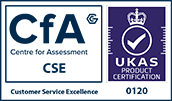Educational Recording Agency license
The University has signed the Educational Recording Agency (ERA) License. The ERA Licensing Scheme permits staff at our institution to record, for non-commercial educational purposes, broadcasts made by ERA Members. This license allows the use of recordings of broadcasts as teaching resources.
For a complete list of ERA members, visit the ERA website.

Recording licensed broadcasts
The ERA License authorises the following non-commercial activities:
- Recording from broadcasts made in the UK by ERA members.
- Electronic communication of licensed recordings within an educational institution.
Please note: A 'broadcast' is defined as a transmission for simultaneous and lawful reception by members of the public, i.e. it is not encrypted or encoded and is for general reception, unlike pay-per-view services. The License therefore covers broadcasts by:
- BBC television and radio.
- ITV Network services (including ITV2 and ITV3).
- Channel Four and E4.
- Five television.
- S4C.
On-demand and interactive services are not deemed 'broadcasts'. These include services where the viewer/listener actively chooses the viewing or listening time or content of programmes. Examples of these types of services would be programmes delivered via the BBC iPlayer, Demand Five, or 4 on Demand. However, broadcasts delivered via the Internet with a range of fixed viewing / listening times to select from may be recorded. Non-scheduled Internet transmissions cannot be recorded under the ERA License.
Please note that only broadcast material owned or represented by ERA members is licensed through the ERA scheme for off-air recording. This excludes certain broadcasts and material such as advertisements from the license as ERA members do not own or control the rights in them.
How to go about recording a broadcast
Academic staff may make recordings either on- or off-campus. Any recordings made off-campus may only be provided for campus use in hard-copy form e.g. DVD, CD-ROM, cassette, etc. and not using email or other online services.
As an ERA license holder the University may also nominate a third-party to record and copy broadcasts on our behalf under a written third party agreement with ERA. Copies of such recordings may again only be delivered in hard copy form and not by email unless prior written permission from ERA.
All licensed recordings must be clearly and appropriately labelled. Failure to do so may lead to our licences being withdrawn. Any casings and discs or cassettes themselves must always be labelled with the following information:
- Date or recording
- Name of the broadcaster
- Programme title
- The wording: "This recording is to be used only for educational and non-commercial purposes under the terms of the ERA Licence"
When storing digital recordings on a server, the above details must be included as a written opening credit or webpage which must be viewed or listened to before access to the ERA recording is permitted.
Anyone recording material under the ERA licence must keep a record as this is a condition of the licence.
University of Bradford off-air recordings service to academic staff
The University of Bradford offers its academic members of staff an off-air recording service. TV recordings can be requested in advance of being aired by emailing av-services@bradford.ac.uk with the date, time, channel, programme name and recharge codes. More information is available from AV Services including advice on getting access to off-air recordings of past programmes. Please note, fees apply to all off-air recording requests.
Storing and reusing off-air recordings
Licensed recordings may be retained, stored and copied in either analogue or digital format. It is permitted to even collect recordings into a resource bank. Recordings may also be relayed within the University of Bradford, for instance online for class showings.
Restrictions on use of licensed recordings
Educational institutions may only record, store or copy programmes for non-commercial educational purposes. This prohibits the use of licensed recordings in the following example situations:
- Showing recordings for entertainment purposes regardless of whether a payment has been made to view such a showing by the members of the audience.
- Including recordings or parts of recordings in ANY corporate materials, e.g. videos, CDs or DVDs aimed at promoting the institution, its student societies or facilities.
- Using still images from recordings on the institutional website or in any other promotional corporate material.
- Selling or commercially hiring licensed recordings.
The ERA website provides further information on how staff at the University of Bradford can use licensed recordings.


